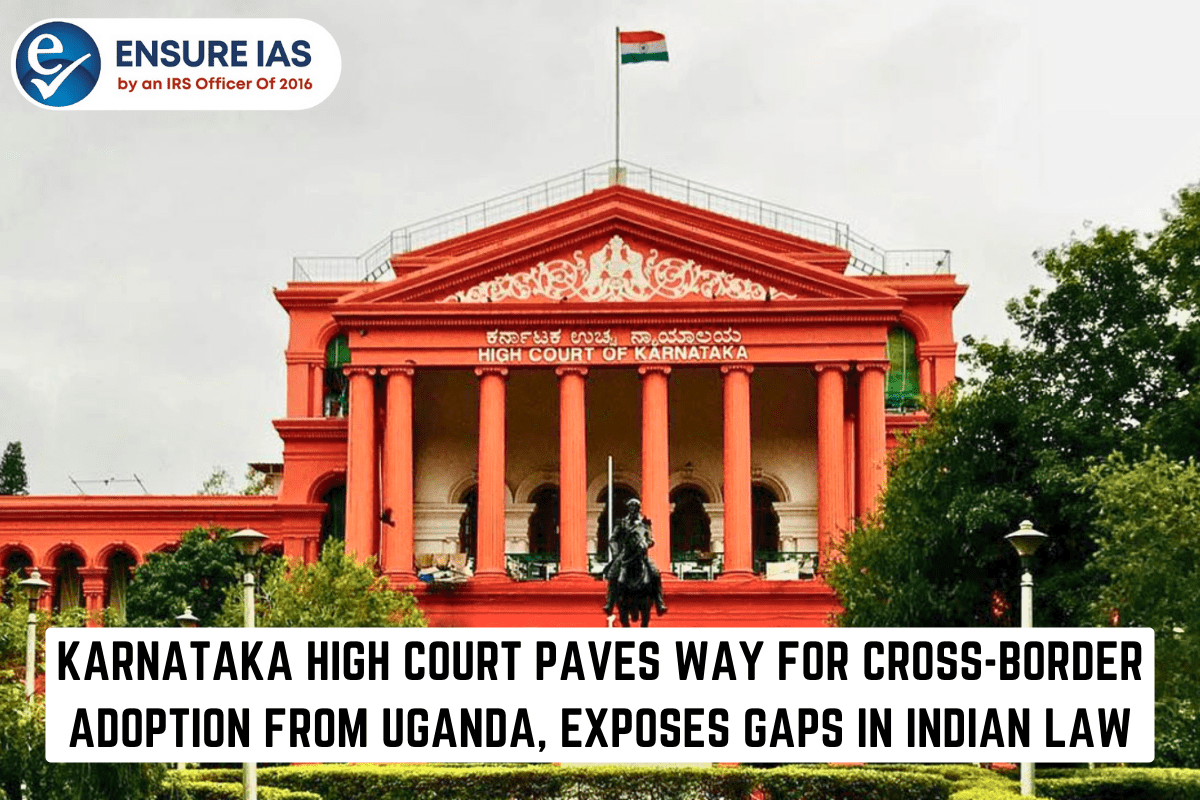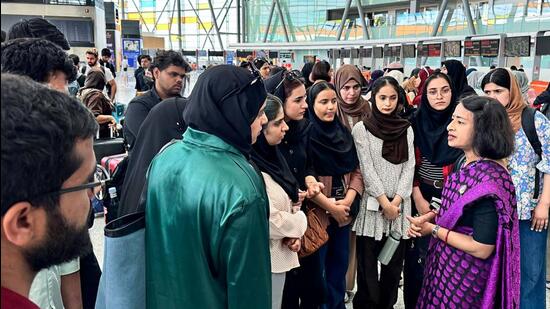- Courses
- GS Full Course 1 Year
- GS Full Course 2 Year
- GS Full Course 3 Year
- GS Full Course Till Selection
- Answer Alpha: Mains 2025 Mentorship
- MEP (Mains Enrichment Programme) Data, Facts
- Essay Target – 150+ Marks
- Online Program
- GS Recorded Course
- Polity
- Geography
- Economy
- Ancient, Medieval and Art & Culture AMAC
- Modern India, Post Independence & World History
- Environment
- Governance
- Science & Technology
- International Relations and Internal Security
- Disaster Management
- Ethics
- NCERT Current Affairs
- Indian Society and Social Issue
- NCERT- Science and Technology
- NCERT - Geography
- NCERT - Ancient History
- NCERT- World History
- NCERT Modern History
- CSAT
- 5 LAYERED ARJUNA Mentorship
- Public Administration Optional
- ABOUT US
- OUR TOPPERS
- TEST SERIES
- FREE STUDY MATERIAL
- VIDEOS
- CONTACT US
CROSS-BORDER ADOPTION CASE: INDIA-UGANDA
CROSS-BORDER ADOPTION CASE: INDIA-UGANDA
30-03-2024

- Couple from Uttarahalli in Bengaluru referred to as "The Couple now resides in Kenya'' are a 43-year-old man and his 42-year-old wife living in Nairobi, Kenya.
- The couple has been working in Kenya and the couple adopted a child in Uganda.
- They have approached the Karnataka High Court to consider legalizing the adoption of the child under Indian law.
- In 2020, the Ugandan High Court confirmed the adoption according to Ugandan laws.
- In June 2023, they contacted the Central Adoption Resource Authority (CARA) to seek approval for the adoption under Indian law.
Key Points:
- Unique Adoption Case: The Karnataka High Court addressed a cross-border adoption where an NRI couple adopted a child from Uganda, a country not party to the Hague Convention. This showed gaps in Indian adoption law.
-
Adoption Background:
- The couple worked in Uganda (2011-2019) and adopted a child in 2014.
- The Ugandan High Court granted them initial guardianship in 2014.
- In 2020, the Ugandan High Court finalized the adoption, legally recognizing them as parents.
- The couple now resides in Kenya.
-
Obstacles in India:
- India's laws primarily address domestic or Hague Convention adoptions.
- The Central Adoption Resource Authority (CARA) was initially hesitant to fully legalize the adoption.
- CARA offered a "support letter," but this wouldn't grant the child full rights as an Indian citizen.
|
-
Court's Ruling:
- The court directed the Indian government to go beyond a "support letter" and issue full approval or a no-objection certificate.
- The court argued India, as a Hague Convention signatory, should uphold the spirit of international adoption.
|
-
The court highlighted:
- The child's rights as a child of Indian citizens take priority.
- The Ugandan court's adoption order is legally valid and should be recognized by India (per Section 13 of the Code of Civil Procedure)
Implications:
- Legal precedent: This case may set a precedent for future cross-border adoptions from non-Hague countries.
- Outdated laws: Highlights the need for India to update its adoption rules to better handle complex international scenarios.
- Giving priority to the child: Emphasizes the courts' commitment to give priority to the welfare and rights of adopted children.



